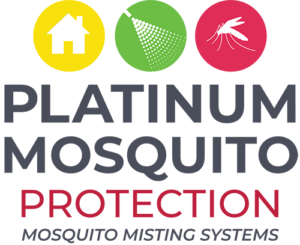Florida officials have confirmed 14 cases of Zika infection by local mosquitos in Miami-Dade and Broward Counties as of August 1
Florida health officials have announced that 14 individuals diagnosed with Zika virus in Miami-Dade and Broward Counties were infected by local mosquitos. While the Centers for Disease Control and Prevention (CDC) has recorded 1,658 cases of Zika infection in the United States to date, these are the first instances in which the virus was transmitted by local mosquitos – all other individuals were infected after traveling abroad.
The possibility of Zika spreading to the mosquito population in the U.S. has been anticipated for some time, though government prevention and response plans are in varying states of readiness.
“If we have a homegrown case, that’s a game changer,” Dr. Thomas E. Dobbs III, the State of Mississippi’s epidemiologist, told The New York Times in June.
Officials have long projected Zika’s spread to the U.S
Florida Governor Rick Scott stated that the local outbreak is thus far limited to a one-mile square area immediately north of Miami, but the national, state and local health officials long warned of the spread of the virus to the United States.
Officials with the CDC and the National Institute of Allergy and Infectious Diseases asked for $1.8 billion in federal funding to deal with Zika in March, and the CDC announced $60 million in aid to U.S. states, cities, and territories on July 21. Despite the request for additional resources, a $1.1 billion dollar package to combat the virus stalled in the U.S. Senate over partisan issues on June 28.
Florida officials declared a state of emergency in counties that have registered cases of Zika infection back in April, in addition to beginning surveillance of local mosquito populations to detect the virus and establishing a statewide hotline to report cases earlier in the year.
Residents asked to take part in prevention
Miami-Dade County Mayor Carlos Gimenez announced in May that the bulk of local efforts to prevent the virus would rely on the cooperation of citizens, urging residents to “to drain and cover flower pots, tires, jugs and other containers capable of collecting water and breeding the mosquito species that is the primary transmitter of Zika,” as summarized by the Miami Herald.
“The main message here is: We have to be responsible for what we do around our homes,” said Miami-Dade Mosquito Control Manager Chalmers Vasquez on July 24. “Don’t expect mosquito control is going to come and do the job for you. We may be too late.”
Overview of Zika
Zika is transmitted by the Aedes aegypti mosquito, which is commonly found in the Southern and Southwestern United States. The virus is known to cause birth defects such as microcephaly and it can possibly result in stillbirth, making exposure a particular concern for pregnant women or couples who may be planning to have children.
In addition to being spread via mosquitos, Zika is also transmitted through sexual contact and transfusions of infected blood. In addition, the virus is found in urine samples, saliva, and even breast milk, though these vectors of transmission are not established in humans.
How to avoid Zika and help prevent its spread
In addition to avoiding travel to countries with larger outbreaks of Zika and practicing safe sex, the best methods of protection rely on safeguarding yourself from mosquitos. South Florida residents should dump out any bodies of standing water on or around their property, cover exposed skin, keep windows closed, and be sure to apply and reapply mosquito repellant when spending time outside, especially in the early morning and late afternoon when mosquitos are the most active.
In addition, we recommend installing a mosquito misting system around your home or business. Our systems use an insecticide based on natural Pyrethrum, which is derived from the Chrysanthemum flower. For decades, Pyrethrum has been the preferred method of controlling mosquitos, flies, and fleas in horse barns and animal housings, as well as the most effective way to protect agricultural crops and city water systems.
These misting systems are available for your home or business to control mosquitos, no-see-ums, spiders, and other pests. For more information on how they work or for a free installation evaluation, contact Platinum Mosquito Protection at 954-888-9311 (Broward), 305.529.3990 (Dade), or 561.744.7787 (Palm Beach) or through our online contact form.

